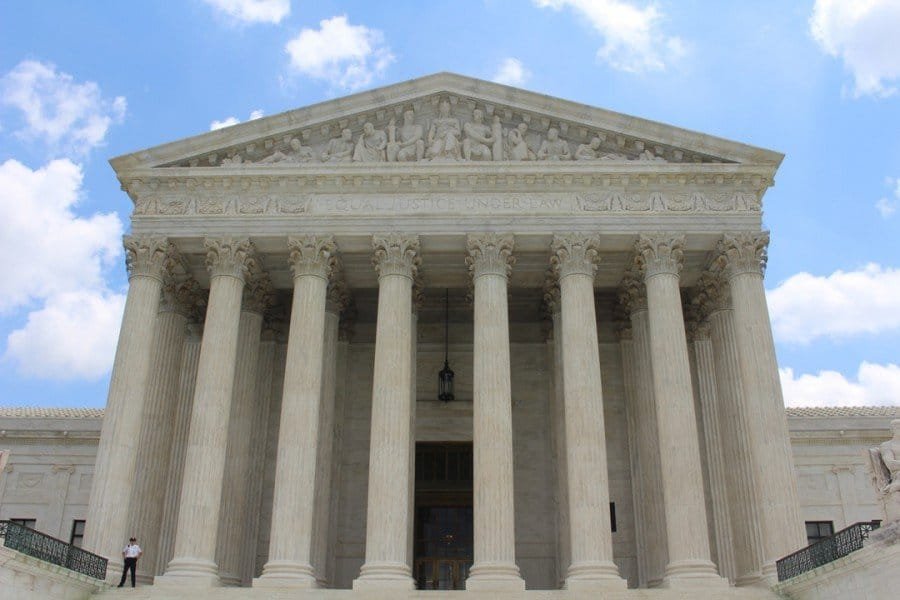In the spring issue of this newsletter, we discussed the beginning of the mandatory pro bono movement across the nation. Since that time, we are sorry to report, the proponents have been progressing.
New York has taken the lead. The Committee to Improve the Availability of Legal Services was appointed by Chief Justice Sol Wachtler to investigate the imposition of mandatory pro bono. Based on an alleged “growing need for legal services for the poor” and disappointingly low” percentage of lawyers volunteering, it is urging the “modest” requirement that every New York lawyer be required to devote at least 20 hours a year to public service. Referring to the failure of previous such plans to survive opposition, the head of the committee predicted better success this time “in part because the man who commissioned it has the power to put it in place.” A series of public hearings are scheduled to begin on October 19. One hearing will take place in New York City; Arline Mann plans to attend.
The proposal contains some mitigating elements. The first is reminiscent of the provision in the early draft laws allowing a draftee to hire an alternate. Members of small firms would be allowed to buy out of the obligation at $50 per hour; members of large firms would be allowed to “pool” their time so that senior partners need not serve. (Some practitioners are complaining about the “unfairness” of allowing the richer lawyers to buy out.)
The second mitigating element is the broad interpretation of the term “public service.” It includes, for example, work “related to improvement of the administration of justice.”
In Texas, the Supreme Court, at the instigation of the State Bar Association, is trying a “back-door” approach. It submitted a new set of Disciplinary Rules of Professional Conduct to the State Bar membership for referendum. Rule 6.01 provides: “A lawyer shall not seek to avoid appointment by a tribunal to represent a person except for good cause, such as . . . [a] likely . . . violation of law or rules of professional conduct; . . . unreasonable financial burden on the lawyer; or . . . [a client or cause] so repugnant to the lawyer as to be likely to impair the client-lawyer relationship or the lawyer’s ability to represent the client.” (Emphasis added.) (One assumes a lawyer will not be allowed to avoid appointment because he finds it repugnant to represent a client who regards slavery as appropriate.) Under the present rules, a lawyer “should not seek to be excused from undertaking the representation except for compelling reasons. Compelling reasons do not include such factors as the repugnance of the subject matter of the proceeding, the identity or position of a person involved in the case, the belief of a lawyer that a defendant in a criminal proceeding is guilty, or the belief of the lawyer regarding the merits of the civil case.” (Emphasis added.)
In a letter to Texas Lawyer, the state bar journal, TAFOL member Michael Mazzone recommended a vote against the provision: “Only a code of values that upholds the use of force and slavery as moral could hold that every lawyer has a moral obligation to provide legal services for those who cannot afford them.” He received in reply a letter from Steven D. Peterson, General Counsel for the State Bar of Texas, interpreting Rule 6.01 as not requiring that a lawyer undertake mandatory pro bono work. Mr. Peterson appears to interpret the rule as limited to “those situations in which a lawyer has been appointed by a court to represent an indigent criminal defendant.” In Mr. Peterson’s view, this is not mandatory pro bono because the lawyer is compensated. Of course it is. In any event, the rule contains no limitation to criminal cases. The official comments repeat the admonition of the former law that a lawyer should not seek to decline appointment because of the lawyer’s “belief regarding the merits of a civil case.” (Emphasis added.)
The comments go on to point out the altruistic motive behind mandatory pro bono. In connection with a discussion of representation of unpopular clients or causes, they state: “History is replete with instances of distinguished and sacrificial services by lawyers who have represented unpopular clients and causes. Regardless of his personal feelings, a lawyer should not decline representation because a client or cause is unpopular or community reaction is adverse. Likewise, a lawyer should not reject tendered employment because of the personal preference of a lawyer to avoid adversary alignment against judges, other lawyers, public officials, or influential members of the community.” I.e., a lawyer may be ordered to take on a client objectionable to himself for no compensation. He must then be prepared to suffer ostracism from members of the community.
On May 19, the lawyers of Texas voted to adopt the new rules.
Further efforts are being made in North Dakota, Maryland, Massachusetts, Hawaii and Illinois. TAFOL member Tom Bowden debated the issue in an October event sponsored by a committee of the Maryland State Bar Association.
In our spring issue we noted that Tulane University Law School requires 20 hours work for indigents as a requirement for graduation. The Ivy League refuses to be outdone: the University of Pennsylvania requires 70 hours. In both programs, the participants receive no course credit. Although one cannot say that such a private university requirement is “mandatory pro bono,” note that each of these institutions is trying to imitate the forcible method of the states. This is done despite evidence that voluntary methods would have the same effect. Student interest in pro bono activity is sufficiently great that law firms are
using the promise of pro bono as a recruiting tool. A major international law firm is offering to funnel $10,000,000 over a period of five years to public interest law firms to pay the salaries of lawyers who want to work for the poor.
In the spring article, we noted that the United States Supreme Court has been asked to interpret a statute allowing a court to request a lawyer to handle a case for an indigent litigant as requiring the attorney to accept the appointment. On May 1, the Court, in a 5-4 decision, decided Mallard v. United States District Court. It ruled that the statute did not authorize a federal court to require an unwilling attorney to represent an indigent litigant in a civil case. It (properly) interpreted the word “request” in its ordinary meaning: “to express a desire that [the attorney do something], even though he may not be generally disciplined or sanctioned if he declines.” It (again properly in the context of the case) ignored the constitutional issues raised in the briefs.
Considering the altruistic approach described above, one might think we “dodged the bullet.” No. The majority went out of its way to limit the application of the case: “We do not mean to question, let alone denigrate, lawyers’ ethical obligation to assist those who are too poor to afford counsel, or to suggest that requests made pursuant to [the statute involved] may lightly be declined because they give rise to no ethical claim. On the contrary, in a time when the need for legal services among the poor is growing and public funding for such services has not kept pace, lawyers’ ethical obligation to volunteer their time and skills pro bono publico is manifest. Nor do we express an opinion on the question whether the federal courts possess inherent authority to require lawyers to serve.”
The dissent would have interpreted the statute as declaratory of an inherent power of courts to impose their will on their “officers”: “The duties of the practitioner are an amalgam of tradition, respect for the profession, the inherent power of the judiciary, and the commands that are set forth in canons of ethics, rules of court, and legislative enactments. . . . [A] court’s power to require a lawyer to render assistance to the indigent is firmly rooted in the authority to define the terms and conditions upon which members are admitted to the bar . . . and to exercise those powers necessary to protect the functioning of its own processes.” The only difference between the two camps is the willingness of the dissent to stretch the language of a statute: “I attach no particular significance to the difference, if any [!!!], between the ordinary meaning of the word ‘request’ [on one hand] and ‘assign’ and ‘appoint’ [on the other].”
Lest anyone think this issue affects only lawyers, consider the following from the concurring opinion of Justice Kennedy: “Lawyers, like all those who practice a profession, have obligations to their calling which exceed their obligations to the state.” (Emphasis added.)
The fight is still ahead.
Copyright © The Association for Objective Law. All rights reserved. Republished in Capitalism Magazine by permission of TAFOL.










